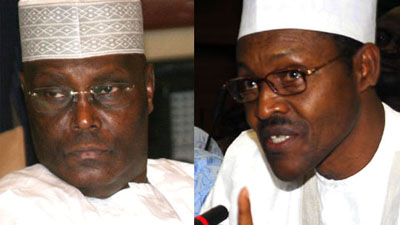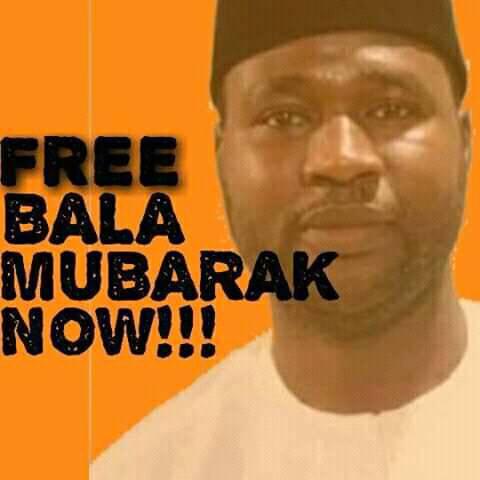
BY SEYI MAFOLABOMI
We will only deceive ourselves as Nigerians if we think any other party has the ability to win the forthcoming elections, outside of APC or PDP. Let me rephrase: If any other party outside of the APC or the PDP wins this election, it will be something of a milestone in history, a landmark achievement that should be studied in our universities. That is how impossible I think it is.
Although our laws dictates a multi-party system, the trend has been to have a ruling party, and a major opposition party. Other parties (third-parties, as I like to call them) do not thrive in Nigeria, especially where the presidential election is concerned. In close to twenty years of democratic rule, the fact that one party has dominated the government of the country for 16 odd years is proof that we are only multi-party nominally.
All well and good, the Twitter and YouTube antics of the new breed (as I like to call them).
The up side of the campaigns for me this period has been the huge amount of people who have joined the discourse on national issues. This does not mean that sensibility is the center of many discussions. By far, many people are still as gullible as ever, making arguments that ignorant people will scorn. But 14.5 million new voters may mean something for some political commentators, and it has the ability to sway the election in favour of a third-party candidate.
The likes of Sowore and Ezekwesili are banking on those commentaries to run a campaign of hope, expecting that there will be potential swings in favour of candidates outside of the APC and PDP. They call these new voters the “undecided voters” of the 2015 election. We should pretend that in the last three years, we were all of voting age, but those people were just undecided. For me, let us forget that many people went to get TVCs/PVCs because it was the easiest way to get a valid National Identification – they are not exactly very interested in voting come 2019. Do we really think that there will be enough numbers to sway the polls in favour of the other parties?
In 2015, there were 68,833,476 registered voters. Only 46.65% turned up to vote. Personally, I would say many irregularities marred the exercise, technically disenfranchising some. So, maybe 50% voter turnout then. In the previous election held in 2011, 53.68% of 73,528,040 registered voters showed up to the party.
Of all the votes cast in the last election, 98.92% of the votes were cast in favour of Buhari and Jonathan, of the APC and PDP respectively. The case was similar to the 2011 elections where the PDP and CPC took the lion’s share of the votes cast, polling 90.87% of the votes.
In those two elections, there were credible third-party candidates. Sonaiya was quite popular with KOWA in 2015. Many people on social media believed she would at least come in a distant third. No one expected her to come in twelfth, especially as it was the likes of Ayeni, Galadima, Onovo, Anifowose-Kelani and Eke that were ahead of her. Her popularity on the social media platforms did not translate to tangible results in the polls. As a matter of fact, no single candidate outside the ruling party (PDP) and the main opposition (APC) polled up to 0.2% of the total votes cast.
In 2011, Ribadu and Shekarau managed to gather about 7.8% of votes cast to come in third and fourth respectively. Both were some way off the top two candidates, Jonathan of the PDP, and Buhari of the CPC. Ribadu is still the only third-party candidate to have won majority votes in a state in Nigeria.
The fact that there are new registered voters does not give the slightest chance to third-party candidates. If we assume, without conceding, that all 14.5millon newly registered voters will vote for a third-party candidate, we must assume restrictively that they will all vote for just one of those candidates.
Will that guarantee a win for that candidate? Not likely. The law requires that a candidate can only be declared winner of a Presidential election if he has won a simple majority of the votes cast in the entire country, as well as 25% of the total votes in each state in at least 2/3 of the states in the Federation. Essentially, you would need those 14.5 million votes to be well spread across at least 24 states in Nigeria to help push those third-party votes to at least 25% of the votes cast.
My question is simple: Which one of the outside candidates can safely land 25% of the votes cast in 24 states of the Federation, let alone get a majority?
The parties that were to contest against Goodluck Jonathan in 2015 knew the importance of pulling weight, particularly by forging strongholds in states. When the APC coalition was formed, it was to systematically bring about a coagulation of these strongholds and forces to ensure that the numbers would outweigh those of the incumbent.
These third parties are new and fresh, bubbling with fresh ideas, and messages of hope. Many have expressed a desire to take over Nigeria from the leading powers. But they have lost from the very start, in my opinion.
Nigeria thrives along party lines as much as it extols the persona of the presidential candidate. No party can win without riding with the image of a strong candidate with the ability to whip up numbers. No candidate can hope to win an election without the strength of the party.
Many of the candidates surfacing today do not have a nation-wide appeal, and they lack the political structure that guarantees strongholds within states and local communities.
Criticise the structure of the ruling party and the main opposition all you want. The fact is clear that the structure guarantees results in their favour. Loyalties within parties are guaranteed by benefits, whole or fringe, that come all the way down to the lowest person in the chain – there is benefit, one way or the other. Little wonder why one person leaves a party and a crowd will follow them out. It is an association of the corrupt, no doubt. Yet it is effective and ruthless.
This is something our intellectual, third-party groups have failed to take note of. Winning a Presidential election in Nigeria is hard work. Many are appealing in social media for the youth to drive change and take the country from the forces that are in charge, from APC and PDP. That is indeed a noble cause. And I am happy that the discussion is starting.
But in Nigeria, the youth driving change are still in the motor parks and at bus-stops, calling the intellectual youth into crowded buses. They don’t do town-hall meetings. They don’t use smartphones. They don’t know about Twitter, but they know schnapps. And at their “schnappschats”, they decide who they will follow. They do not just change their own minds. They force others to follow. These are the powers that be. Those people we so easily dismiss as the problems of society are the worthy tools in the hands of godfathers and godsons. They ensure the majority remains where they want it to be. They are not the grassroots. They are the soil the grass takes root in.
My take is that many of the aspirants are trying to solve a persistent Nigerian problem but do not understand where to look for the solution. Until that grassroots issue is fixed, there will be no escaping the major parties. It will continue. And not even winning a presidential election by the greatest miraculous upset in world political history will help a third-party aspirant make the desirable changes.
You cannot change the fruits of a tree by perching on its head.
For me, the 2019 race is still effectively between Buhari and Atiku.




Comments (3)
Towards 2019 – OLÚṢÈYÍsays:
October 27, 2018 at 3:26 pm[…] https://ajispeaks.com/2018/10/27/2019-buhari-and-atiku-vs-the-others/ […]
Joelsays:
October 27, 2018 at 4:22 pmExcellently written. “Schnappschats” indeed. 😁
Alisa Russellsays:
October 29, 2018 at 10:21 pmExcellent article! For someone who does not live in this country, I learned a lot about the political situation in Nigeria.